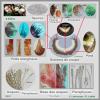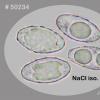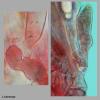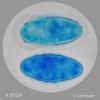
12-02-2026 21:34
patrice CallardBonjour, la face inférieure des feuilles ce certa

11-02-2026 22:15
 William Slosse
William Slosse
Today, February 11, 2026, we found the following R

12-02-2026 14:55
Thomas Læssøehttps://svampe.databasen.org/observations/10581810

11-02-2026 19:28
 Lothar Krieglsteiner
Lothar Krieglsteiner
on small deciduous twig on the ground in forest wi

25-04-2025 17:24
Stefan BlaserHi everybody, This collection was collected by J�

10-02-2026 17:42
 Bernard CLESSE
Bernard CLESSE
Bonjour à toutes et tous,Pourriez-vous me donner

10-02-2026 18:54
Erik Van DijkDoes anyone has an idea what fungus species this m

09-02-2026 20:10
 Lothar Krieglsteiner
Lothar Krieglsteiner
The first 6 tables show surely one species with 2

09-02-2026 14:46
Anna KlosGoedemiddag, Op donderdag 5 februari vonden we ti
50234 - Trichophaea sp ?
Roland Labbé,
22-04-2010 21:40
Voici un disco de la région de Québec que nous pensons être un Trichophaea,
peut-être T. variornata.
Comme d'habitude, merci de nous aider.
Amitiés !
Roland
Détails :
Date de récolte : 16 / 08 / 2009
Habitat : forêt mixte
Substrat : débris ligneux très décomposés de feuillus
Sporée non disponible
Spores ellipsoïdes, lisses ou finement et irrégulièrement verruqueuses, à ornementation viariable se dissolvant en KOH, uni ou biguttulées au début puis uniformément granuleuses, 18-24 x 8-11 µm, 21,8 x 9,9 µm en moyenne (10 spores), Q = 2,2, à verrues jusqu'à 0,3 µm de hauteur et 0,8 µm de largeur
Asques à 8 spores unisériées, avec crochet à la base et appareil apical inamyloïde, jusqu’à 260 µm de longueur
Paraphyses cylindriques, parfois ramifiées, légèrement élargies à l'apex jusqu'à 4,6 µm de diam. en moyenne, et parfois légèrement étranglées, septées, à contenu huileux hyalin jaunâtre à 90-100%, ne dépassant pas ou peu les asques
Poils marginaux souvent longuement subulés, largement cylindriques ou subglobuleux à la base, septés, à paroi épaisse jusqu'à 3 µm, parfois légèrement incrustés, brun foncé, jusqu'à 460 x 15 µm
Richard Korf,
23-04-2010 00:20
Re:50234 - Trichophaea sp ?
This seems very possibly T. variornata Korf & W.Y. Zhuang. I can't believe we didn't mention the asci arising from croziers, which you show but we didn't mention or illustrate, Did you try KOH treatment to see if the ornamentations disappear after exposure to KOH? I couldn't really make out the kinds of ornamentation you saw from your photos. We did not see paraphysis apices wider than 4µ, and you see some up to 6µ wide, but that may not be significant. We described it from two collections, both from Madeira, so this would be a new record for the Western hemisphere, unless there are other collections reported in the literature that I have missed. I might be able to arrange a loan of the type specimen if you want to make a careful comparison. It would certainly be worth reporting the new locale if indeed it is our species.
Dick Korf
Dick Korf
Roland Labbé,
23-04-2010 01:10
Re:50234 - Trichophaea sp ?
Hi Dick !
Would yo want to have our specimens ?
I can send them to you.
We will check again for croziers, ornamentation, KOH and dimensions of paraphyses.
We have little experience with disco, so we don't know well to study them.
We do our best !
Friendly !
Roland
Would yo want to have our specimens ?
I can send them to you.
We will check again for croziers, ornamentation, KOH and dimensions of paraphyses.
We have little experience with disco, so we don't know well to study them.
We do our best !
Friendly !
Roland
Richard Korf,
23-04-2010 01:21
Re:50234 - Trichophaea sp ?
Hi, Roland,
I'd be glad to compare your specimens with our collections. Best postal address is:
Richard P. Korf
316 Richard Pl.
Ithaca, NY 14850-3120, USA
Best regards,
Dick
I'd be glad to compare your specimens with our collections. Best postal address is:
Richard P. Korf
316 Richard Pl.
Ithaca, NY 14850-3120, USA
Best regards,
Dick
Renée Lebeuf,
23-04-2010 04:06
Re:50234 - Trichophaea sp ?
Hello Richard and Roland,
If I may mention it, you can see the picture in a bigger format at the following address. You can see it in different sizes.
http://www.flickr.com/photos/19369983@N06/4529674868/sizes/l/in/pool-674788@N24/
Renée Lebeuf
If I may mention it, you can see the picture in a bigger format at the following address. You can see it in different sizes.
http://www.flickr.com/photos/19369983@N06/4529674868/sizes/l/in/pool-674788@N24/
Renée Lebeuf
Richard Korf,
23-04-2010 04:22
Re:50234 - Trichophaea sp ?
Hi, Renée,
When I click on that URL I get the following result:
"The photo you were looking for has been deleted.
You might like to ask Keez on Hudson about it!
Here's a link back to your home page."
Dick
When I click on that URL I get the following result:
"The photo you were looking for has been deleted.
You might like to ask Keez on Hudson about it!
Here's a link back to your home page."
Dick
Richard Korf,
23-04-2010 04:34
Re:50234 - Trichophaea sp ?
Hi, Renée, again,
When i click on your URL here on this website rather than from the email version i received i do find the photo enlarged. But still the critical features of the ascospore markings are not at all clear.
Dick
When i click on your URL here on this website rather than from the email version i received i do find the photo enlarged. But still the critical features of the ascospore markings are not at all clear.
Dick
Roland Labbé,
23-04-2010 05:06
Re:50234 - Trichophaea sp ?
Here are some responses :
- croziers are presents, you will see a photo
- a spore has been photo. to highter magnification to see the ornamentation
- the ornamentation is dissolve in KOH
- the paraphyses have 4,6 µm wide at apex on average
We can't present all we want with so clarty.
So, we express the charecteres as we are able.
Roland
- croziers are presents, you will see a photo
- a spore has been photo. to highter magnification to see the ornamentation
- the ornamentation is dissolve in KOH
- the paraphyses have 4,6 µm wide at apex on average
We can't present all we want with so clarty.
So, we express the charecteres as we are able.
Roland
Richard Korf,
23-04-2010 14:54
Re:50234 - Trichophaea sp ?
Hi, Roland,
All sounds like this is indeed T. variornata. The major character was the great variability of spore markings (they stain in cotton blue). If you looked at the illustrations in our paper you will see what i mean. Go to Mycotaxon homepage (www.mycotaxon.com) and click on CYBERLIBER in second paragraph. Choose Journals on left side, click on Mycotaxon, and choose volume 40, page 431.
Dick
All sounds like this is indeed T. variornata. The major character was the great variability of spore markings (they stain in cotton blue). If you looked at the illustrations in our paper you will see what i mean. Go to Mycotaxon homepage (www.mycotaxon.com) and click on CYBERLIBER in second paragraph. Choose Journals on left side, click on Mycotaxon, and choose volume 40, page 431.
Dick
Roland Labbé,
23-04-2010 18:32
Re:50234 - Trichophaea sp ?
Why it is not T. pseudogregaria Dick ?
Roland
Roland
Roland Labbé,
23-04-2010 21:31
Richard Korf,
23-04-2010 22:06
Re:50234 - Trichophaea sp ?
Hi, Roland,
I assumed you had seen the variable spore markings that characterize T. variornata. I could NOT make out the markings from your earlier photos. That's why I suggested I see a specimen. The new photo shows 4 spores all with rather regular markings. If you stain markings with cotton blue (heating a bit helps) they will show well in surface view, not only in optical section as they are here in your photo. I'll still be glad to look at a specimen. T. pseudogegaria is probably common in Quebec. I could see the croziers in your earlier photos.
Dick
I assumed you had seen the variable spore markings that characterize T. variornata. I could NOT make out the markings from your earlier photos. That's why I suggested I see a specimen. The new photo shows 4 spores all with rather regular markings. If you stain markings with cotton blue (heating a bit helps) they will show well in surface view, not only in optical section as they are here in your photo. I'll still be glad to look at a specimen. T. pseudogegaria is probably common in Quebec. I could see the croziers in your earlier photos.
Dick
Roland Labbé,
23-04-2010 22:19
Roland Labbé,
24-04-2010 03:45
Re:50234 - Trichophaea sp ?
Hi Dick !
We are not able to present the spore ornamentation in cotton blue.
It makes 5 times that we do the test and the ornamentation in not at all clear.
We can't make a photo better than the NaCl iso.
But, we can say that the ornamentation is like your figure in Mycotaxon, variable, bigger warts mixte with smaller.
It's it enought to give the name T. variornata to our collection ?
The specimens have just take the post mail.
Merci beaucoup Richard pour votre dévouement envers nous.
The plate has been changed.
Amitiés !
Roland
We are not able to present the spore ornamentation in cotton blue.
It makes 5 times that we do the test and the ornamentation in not at all clear.
We can't make a photo better than the NaCl iso.
But, we can say that the ornamentation is like your figure in Mycotaxon, variable, bigger warts mixte with smaller.
It's it enought to give the name T. variornata to our collection ?
The specimens have just take the post mail.
Merci beaucoup Richard pour votre dévouement envers nous.
The plate has been changed.
Amitiés !
Roland
Richard Korf,
24-04-2010 05:24
Re:50234 - Trichophaea sp ?
We never saw such variability in spore markings in any other species of Trichophaea, I'll be happy to look at the specimen you are sending me. What do you dissolve your cotton blue in? Most people use either lactc acid or lactophenol. Heating the mount almost to boiling point also enhances dye absorption in spore markings in Pezizales. Water is not much use.
Regards,
Dick
Regards,
Dick
Roland Labbé,
25-04-2010 01:35
Peter Welt,
25-04-2010 14:43

Re:50234 - Trichophaea sp ?
Hello Roland,
I would be intrested also evidence, as I also do a little work on the species. Before all interested me the hair on the edge.
Greeting Peter
My address:
Peter Welt
Bernhardstr. 122
D-09126 Chemnitz
Germany
I would be intrested also evidence, as I also do a little work on the species. Before all interested me the hair on the edge.
Greeting Peter
My address:
Peter Welt
Bernhardstr. 122
D-09126 Chemnitz
Germany
Roland Labbé,
25-04-2010 15:54
Re:50234 - Trichophaea sp ?
Hi Peter !
We have no more specimens.
All we have is sent to Dick.
But, we can find it agan I think and if so, we will make a post to you.
Sorry !
Roland
We have no more specimens.
All we have is sent to Dick.
But, we can find it agan I think and if so, we will make a post to you.
Sorry !
Roland
Richard Korf,
25-04-2010 16:42
Re:50234 - Trichophaea sp ?
Hi, Peter & Roland,
All I will probably make is a mount or two to compare with the type of T. variornata. I had no idea Roland would send all his material. After I take a look I can return it to Roland or if he wishes I can send it on to Peter. I'll keep my slides here in CUP herbarium as a record. The more of us involved the better the resolution! The final material should be deposited in some accessible herbarium, along with notes by folks who examine it. Roland, let me know whether to return or forward.
Dick
All I will probably make is a mount or two to compare with the type of T. variornata. I had no idea Roland would send all his material. After I take a look I can return it to Roland or if he wishes I can send it on to Peter. I'll keep my slides here in CUP herbarium as a record. The more of us involved the better the resolution! The final material should be deposited in some accessible herbarium, along with notes by folks who examine it. Roland, let me know whether to return or forward.
Dick
Roland Labbé,
25-04-2010 17:01
Re:50234 - Trichophaea sp ?
Richard, you can make what you want with our materiel, send it to Peter, conserve it, place it in a harbarium or wathever is usefull.
If the final result could be a publication, this would be in accord to our property.
Roland
If the final result could be a publication, this would be in accord to our property.
Roland
Peter Welt,
25-04-2010 21:03

Re:50234 - Trichophaea sp ?
Hello Dick and Roland,
Would greatly appreciate a small part. Thank you.
Dick, I've sent you a mail too.
Best Regards Peter
Would greatly appreciate a small part. Thank you.
Dick, I've sent you a mail too.
Best Regards Peter



